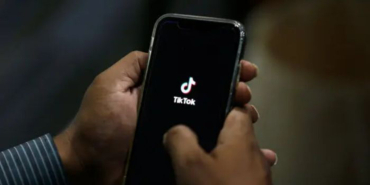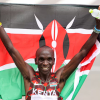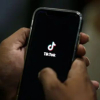Trump Hands Kenyan Gays, Sex Workers a Major Reprieve

Plans to have a national census for gays, sex workers and drug injectors in Kenya by collecting their fingerprints, iris and toe scans has flopped after the United States declined to fund it.
Since 2016, Kenya's Ministry of Health has been pushing for a national census for the three groups of people, but the proposal has been met with resistance from human rights groups.
The Ministry argued that the move would help end fraudulent collection of free anti-retroviral drugs (ARVs) for sale in the black market. Male and female prostitutes have been suspected to be collecting free ARVs, HIV prevention pills, condoms, lubricants, antibiotics, test kits and other biomedical items to sell in the black market.
The Kenya Key Populations Consortium, an umbrella body for more than 90 groups of gays, prostitutes, drug injectors and activists has opposed the use of biometrics during the census.
“Everyone just said no, and we kept saying no,” says a report documenting a battle that spanned several major cities in the world.
The US President’s Emergency Programme for AIDS Response (PEPFAR) has refused to give funds for the exercise, unless the Kenya's Health Ministry leaves out biometrics from the survey.
KELIN, a Kenyan NGO for the UK lobby group Privacy International and Aids Fonds of The Netherlands in its report in April termed the move by PEPFAR as a major win for the marginalised groups in Kenya.
“As a result of meetings, statements and donor interventions, NASCOP has agreed to remove the use of biometrics from the census when it is conducted in 2018,” says the KELIN report.
HIV programming in Kenya relies on data collected by NASCOP in a survey in 2013, which puts the number of three groups at about 200,000.
“The absence of accurate size estimates makes it challenging to persuade donors to provide sufficient funding for health services to key populations,” says the KELIN report.
KELIN further says that NASCOP, which had already procured biometric equipment for the exercise, had at one point threatened the commercial sex workers with unspecified consequences.
“NASCOP representatives warned key populations representatives of potential negative repercussions for their organisations if the research did not proceed as planned with the use of biometrics,” says the report.
“We the Kenya Key Population Consortium support the census but not the use of biometrics as a method of data collection,” the Consortium wrote to PEPFAR, UN, and the Global Fund.
Health Gap, a global body that ensures people with HIV have access to life-saving medicines took the fight to the PEPFAR budget planning meetings and demanded the case of Kenya’s gays and prostitutes be heard.
“One of the major achievements from this is for PEPFAR to support a new census of key populations in 2018 without the use of biometrics,” says Health Gap, which convinced PEPFAR against funding the census.








Comments
Now: How is NOT funding a…
Permalink
Now: How is NOT funding a Gay census a REPRIEVE? Or is the Person who Posted this Article gay?
The issue being discussed…
Permalink
The issue being discussed here is public health and privacy and not the sexual orientation of the author. The information from the census is crucial to programming, monitoring and evaluation of hiv trends in Kenya because non biased data reflects the reality of the society we likebe in today. This way we can access every body and control the spread of hiv.
Add new comment